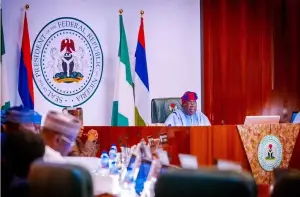Moroccan agrotechnology startup Sand to Green has secured a $50,000 grant at the DeepTech Summit 2025, boosting its mission to transform desert and degraded lands into productive farmlands. The award, presented in the Green Economy category at the summit held on May 8-9 in Benguerir, Morocco, will fund the company's expansion across Africa, the Middle East, and Southern Europe.
The summit, organized by the Mohammed VI Polytechnic University (UM6P), highlighted growing investor interest in agriculture technology-as-a-service (AaaS) in Africa. This development comes as the Moroccan government and World Bank are increasing investments in agrotechnology through initiatives like the Morocco Digital and Climate Smart Agriculture programme.
"This international recognition is a turning point for us," said Benjamin Rombaut, CEO and co-founder of Sand to Green. "It confirms that Deep Tech can be a powerful lever for restoring ecosystems, fighting desertification, and offering sustainable economic prospects to vulnerable territories in cooperation with all local actors."
Founded in 2021 by Rombaut, Gautier de Carcouët, and Wissal Ben Moussa, Sand to Green has previously raised $1 million in seed funding from investors including Norway's Katapult and the Catalyst Fund. The company's innovative approach combines satellite-driven land analysis, solar-powered desalination, and regenerative agroforestry to create sustainable farmlands in arid regions.
The startup's work addresses critical global challenges, as the United Nations reports that over 40% of the world's land is already degraded, affecting half of the global population and costing the world economy up to $6 trillion annually. In Africa, desertification causes the loss of approximately 3 million hectares of forest and arable land each year, reducing the continent's GDP growth by nearly 3% annually, according to the Food and Agriculture Organisation (FAO).
Sand to Green's business model integrates environmental data—including soil type, climate patterns, and topography—with local agricultural practices to develop customized agroecological systems. The company generates revenue by designing and managing sustainable farms that grow high-value crops like nuts, grains, and herbs, while also providing consulting services, land development, and generating carbon credits for businesses looking to offset emissions.
Currently operating in Morocco with plans to expand in the Tan-Tan region, Sand to Green is backed by NextAfrica, a trans-continental accelerator run by UM6P and Paris-based STATION F, which provides strategic support, mentorship, and investor access to startups.
As Africa continues to spend more than $35 billion annually on food imports, innovative solutions like Sand to Green's technology could play a crucial role in addressing food security challenges while combating climate change and desertification across the continent.













